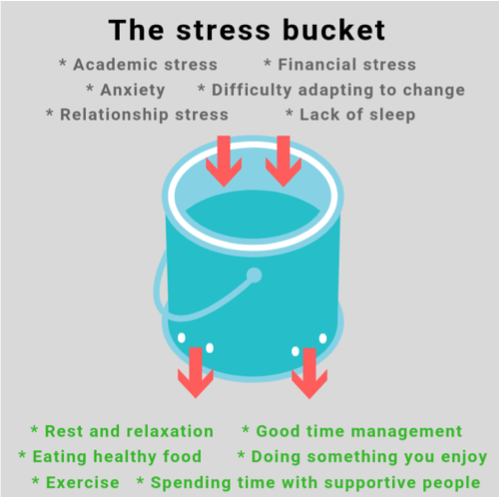Is stress affecting your health and ability to conceive? Too much stress can be damaging to your health, putting you at a higher risk of illness and disease.
What happens in your body when you are overly stressed?
Stress is the body’s natural response to environmental stimuli. It is an emotional and physical response to a perceived threat, either from inside or outside the body.
When a threat is perceived, biochemical changes in your body result in an increase in heart rate, blood pressure, breathing rate, and glucose levels. These changes are designed to ensure you are physically ready to respond to stress. After the stressful event or emotion is over, the body returns back to balance (homeostasis). If this stress is short-term, no detrimental effects are caused. Although this is a natural response, when stress is experienced consistently and/or at a high level it can increase the risk of health issues such as cardiovascular disease and high blood pressure. Chronic stress is now known to detrimentally affect behaviour, mental health and physical wellbeing.
How stress affects your body
When the body experiences stress the sympathetic nervous system (SNS) and the hypothalamic-pituitary-adrenal (HPA) axis are activated. This leads to the release of stress hormones (adrenaline and cortisol) which also suppress immune responses, both of which can increase your body’s susceptibility to inflammation, illness and disease.

While it is widely acknowledged in medical literature that stress can be linked to about 95% of all known illnesses, it’s link to fertility and conception must also be considered.
A short stroll back into the Stone age would see us responding to environmental or physical threats such as famine or a predator salivating at the thought of devouring us. The stress response mentioned above, remains the same. What has changed significantly is the repetitive nature of stressors we are exposed to in the 21st Century. Our modern body does not differentiate between that sabre-toothed tiger or upsetting phone call, traffic, difficult neighbour, work assignment that is overdue, bullying, mortgage payments, divorce….get the picture? We are constantly receiving messages of perceived stressors and it is this chronicity that prevents our body from returning to homeostasis.
Just as this chronic and persistent stress affects our digestive system and major organs, it also sends a message to your reproductive system that making a baby while in perceived danger is not a good idea.
Stress as a risk factor for disease
Stress is a risk factor for many health issues and diseases. Stress is related to the progression of asthma, type 2 diabetes mellitus, metabolic syndrome and some cancers. Work stress in particular has been found to increase the risk of some cancers. Studies show that colorectal, oesophagus, lung, bladder and stomach cancers increase with higher work stress, with men being more at risk of these stress-related cancers than women.
Differences in expressing stress
Not everyone responds to stressful situations the same way. Some of these differences are genetic, some are due to upbringing, and some are due to differences in biology. For example, women tend to report higher stress levels than men, but they are more likely to express their difficulties in experiencing and dealing with stress. However, it is important to note that men still can experience the same level of stress – they just tend to express it differently.
Stress from work can affect women and men differently with some studies showing that women may be more affected due to struggling more with the balance between work and family life.
Strategies for stress reduction
Given the negative effect chronic stress can have on your health, it makes sense to get some support if you are feeling particularly stressed. Strategies to reduce stress can include lifestyle strategies, specific dietary changes, and nutritional and herbal medicines aimed at reducing symptoms and improving the body’s resistance to stress.
Some examples include:
• Lifestyle strategies: Mindfulness practices, relaxation training, breathing techniques, guided meditation, and ensuring you get daily (enough) restful sleep.
• Exercise and movement: go for a walk in nature, walk the dog, exercise in groups, short bouts of exercise, take the stairs, yoga or Tai Chi are just a few ideas.
• Silence the negative self-talk and replace with gratitude.
• Dietary recommendations: Moderating intake of caffeinated beverages, limiting alcohol intake, avoiding ultra-processed and high sugar foods, consuming adequate purified water, and eating a nutrient-rich plant-based diet.
• Herbal and nutritional medicines: There are a number of specific nutrients that are critical during times of high stress. In addition, herbs traditionally used for stress and anxiety may also be useful – always consult a qualified naturopath or herbalist and NEVER self prescribe.
• See a professional counsellor, life coach, psychologist or clinical hypnotherapist.
| Strategies for stress reduction – empty the Stress Bucket |
| Strategies to reduce stress can include lifestyle and dietary changes aimed at reducing symptoms and improving the body’s resistance to stress.
Naturopaths allow more time in a consultation enabling them to listen to your needs and develop an individualised specific treatment plan. |

Reference: https://health.umms.org/2019/11/29/fit-exercise-into-your-life/
